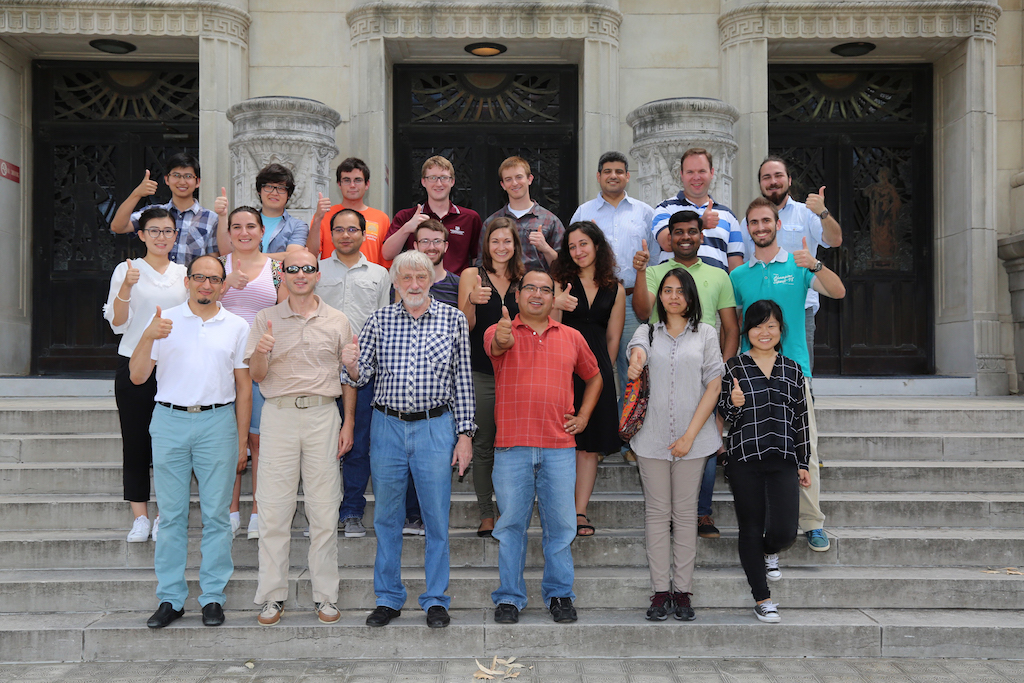
Leading researchers and graduate students from institutions across Europe, North Africa, the Middle East and North America attended the sixth International Institute on Multifunctional Materials for Energy Conversion (IIMEC) School on Computational Materials Science Across Scales at Texas A&M University.
IIMEC is a National Science Foundation-funded International Material Institute, established at Texas A&M, in partnership with participating U.S. institutions (Texas A&M, University of Houston, Pennsylvania State University) as well as international research collaborators at universities around the globe.
The summer school served as part of IIMEC’s mission to facilitate a platform for students and faculty from the United States and participating countries to exchange knowledge and to be involved in a global research and international leadership experience.
Dr. Amine Benzerga, associate professor in the Department of Aerospace Engineering and an affiliated faculty member in the Department of Materials Science and Engineering, led the summer school with the support of Dr. Raymundo Arróyave, associate professor in materials science and engineering, the college of engineering, the college of science and the Office of the Associate Vice Chancellor for Engineering Research.
“We continued with the theme of multi-scale computational materials science, as we have done for the past five instances of the school,” said Arróyave. “The big difference this time, though, was that we dedicated an entire day of the school for students to get more in-depth experience with specific computational tools of their choosing. This enabled them to pursue activities that better resonated with their research interests.”
The school boasted instructors from Texas A&M, Georgia Tech, Purdue University, National Institutes for Standards and Technology, Lawrence Livermore National Laboratory, Centre des Matériaux MINES Paristech (France), Arts et Métiers ParisTech (France), University of Cambridge (England) and The University of Duisburg-Essen (Germany).
Summer school participants included students from more than a dozen institutions, including seven of the top universities in the United States, as well as universities and research institutes in, France, Greece, Qatar, Egypt and Germany.
Over a period of 10 days, students were exposed to theory and practice sessions focused on different computational materials simulation tools ranging from continuum to the electronic structure level. Hands-on computational laboratory activities were part of the class structure.
Students had access to Linux Cluster consisting of several hundred nodes/cores. State-of-the-art computational codes such as VASP, ABAQUS, LAMMPS, ParaDis, MatCalc, VPSC and MATLAB were used to illustrate the concepts covered in the school. Software and hardware infrastructure was facilitated by Dr. Lisa Perez, manager of the Laboratory of Molecular Simulation under Dr. Michael B. Hall, executive associate dean of the college of science and professor of chemistry.